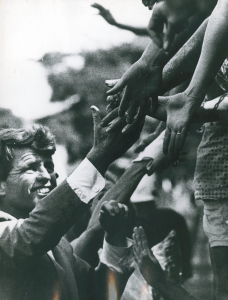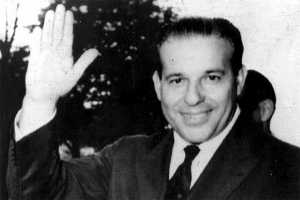Robert Kennedy during visit to Brazil
João Goulart
The Kennedy presidency, along with Brazil’s Janio Quadros, brought about hopes for renewed synergy between the two governments. Kennedy seemed much more open to providing Brazil with government-to-government aid, and the Quadros administration seemed more open to making the austerity reforms long championed by the United States. It seemed that Kubitschek’s “Pan American” ideals were on the verge of becoming reality. Yet, once again, the “special relationship” didn’t materialize. Brazil increasingly asserted its independence in international affairs, seeking to reopen relations with Eastern European nations such as Hungary. The U.S. grew increasingly distrustful of the Brazilian Government, especially after Goulart was elevated to President. Additionally, American officials started acting in the interest of U.S. Business leaders, as opposed to creating a coherent course of action in Brazil. Cold War calculations, rather than economic partnership, quickly became a priority for the Kennedy administration. This led to U.S. support of western-alligned candidates in Brazilian elections, as well as intelligence support for the 1964 Coup.
Readings:
Ruth Leacock, “JFK, Business, and Brazil” | English
Michael Weis, “The Twilight of Pan-Americanism: The Alliance for Progress, Neocolonialism, and Non-Alignment in Brazil, 1961-1964” | English
Documents:
Jânio Quadros, “Brazil’s New Foreign Policy” | English





